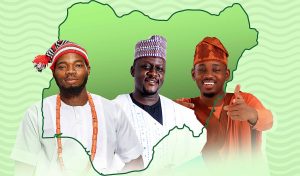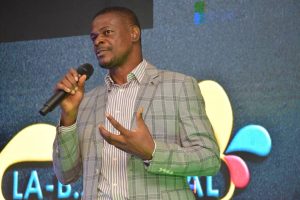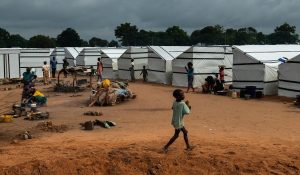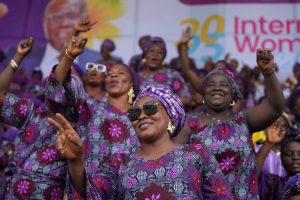
Nkasiobi Oluikpe
“There is a special place in hell for women who don’t help other women”. –– Madeleine Albright, Former Secretary of State
In 2019, Nigeria ranked 181 out of 193 countries surveyed in the women in politics index. This survey was by the Women’s International League for Peace and Freedom.
Another poll was by the Inter-Parliamentary Union Women in Politics, and Nigeria ranked 184 out of 192 countries for women representation in the national parliament for the year 2021.

And the last survey by them too, Inter-Parliamentary Union ranking of women in parliament, saw Nigeria lagging at 179 out of 187 countries worldwide for the year 2022, the lowest in the entire of the African continent.
This abysmal rating becomes unquestionably right when tested on the performance of Nigerian women politicians during their contest to various elective positions. One or two examples will suffice:
Oluremi Comfort Sonaiya, an educationist and writer, in 2015 was the only female presidential candidate who contested for the 2015 general elections under the platform of the KOWA Party. She was edged out at the primaries level.
Sarah Jubril, subsequently branded a veteran presidential aspirant, contested four times, to no avail. During the aborted Third Republic in 1992, she was a presidential aspirant in the defunct Social Democratic Party (SDP) and lost out in the primaries. Again in 1998, during the election that ushered in the current democratic system, she contested on the platform of the Peoples Democratic Party (PDP) and lost out to the eventual flagbearer.
Not deterred, in 2003, seeing no chances in the PDP, she defected to the Progressive Action Congress (PAC) and became the first woman to represent a registered party in a presidential contest. Again she lost out to the PDP candidate.
Also in 2011, Jubril ran again as the only female candidate in the PDP primary election. Spent her hard earned money, traveled around and appealed to her fellow women to support her. Everybody knows that electioneering processes in Nigeria don’t come cheap. By the end of the whole show, not only did she lose, she got only one vote. The very vote she cast for herself.
Now, you can see where the veteran title is coming from. The Oxford Dictionary describes veteran as a person who has had long experience in a particular field. Well, I wouldn’t know if unsuccessfully contesting for presidential election four different times qualify her as a veteran. However, I know for a fact that when the title is not associated with success, it automatically becomes a mockery.
Some questions however beg for answers here. And these are:
Where were her colleagues shouting gender bias and low women representation when she got her only one vote? Were there no female delegates at the convention? Why did they not vote for her? Is gender discrimination relative? Are there terms and conditions under which gender discrimination can be justified? Which of the sexes is more guilty of gender discrimination?
Prior to the ongoing voting processes in the country, the Independent Electoral Commission (INEC) chairman, Yakubu Mahmood, who was represented by Kwara Resident Electoral Commissioner (REC), at the Democracy Day lecture, disclosed that women and the youth represented more than 75 per cent of registered voters and could determine who wins the 2023 elections.
His words: “I encourage them to work together because they can conveniently win elections in 2023 if they can truly work together.”
Last year, precisely on July 21, there was a publication by The Guardian newspapers that gave a breakdown of the constitution of women in the voting exercise in Osun State. According to the publication, women constituted 52.76 per cent, while men had 47.24 per cent.
Back in 2019, women were said to account for 47.14 per cent of registered voters nationwide. In the 2015 presidential election, voter turnout data shows that housewives were the third highest group of the nine groups that voted. They were third to students and civil servants.
One can now understand the reason most politicians take their campaigns to the market squares, churches and various other places where there is concentration of women.
The figures above indicate the kind of voting power that women can wield if properly utilized. Why then are they still crying about under-representation? Who then is responsible for the under-representation?
After her last presidential election contest, Jubril during an interview stated thus: “My one vote will haunt Nigerian women for a long time. That formed the headline of that interview.”
Although there are few other elective positions that women are occupying but since after Jubril, no other woman has made it past the presidential primaries stage in Nigeria, despite being blessed with intelligent women who are excelling in their various professional callings. The fear of losing resources as well as the shame of not being encouraged and supported by both their fellow women and the menfolk, have kept women away from daring where some men dread to thread.
What then is the essence of the International Women’s Day annual ritual if its tenets and objectives cannot be lived out in our endeavours? In the face of so many feminist movements, little progress is being made. Why are we not questioning that? It implies that we are not being honest in the struggle for gender equality.
Why then are we busy deceiving ourselves joining the rest of the world to celebrate the political, cultural, social and economic achievements of women globally.
This is one issue that women don’t like being raised, especially, during this period of the IWD celebration. But whether we like it or not, it is real. And not often discussing it, amounts to playing the ostrich and not being honest with the truth.
We should understand that the more we draw attention to it, the more we are conscious of it and the more we devise a way out of it.
Though the article is restricted to politics, we all know that even in the workplace, the difference is not much.
Women should be made to understand that their fate is in their own hands. The onus lies on them. Nobody from anywhere is coming to break those biases and ensure equality.
It is not enough to go trumpeting the biases at the hilltop. Bold steps have got to be taken to change the narrative. And the women are to be the ones to lead the way, thereafter, everything else will fall in place.
If we do not want the real essence of the IWD to keep eluding us as a nation, let us reflect on the 2023 IWD theme: DigitALL: Innovation and technology for gender equality , and seek ways to bring it to bear in real life situations.
We have mouthed it enough. It is time for action!









